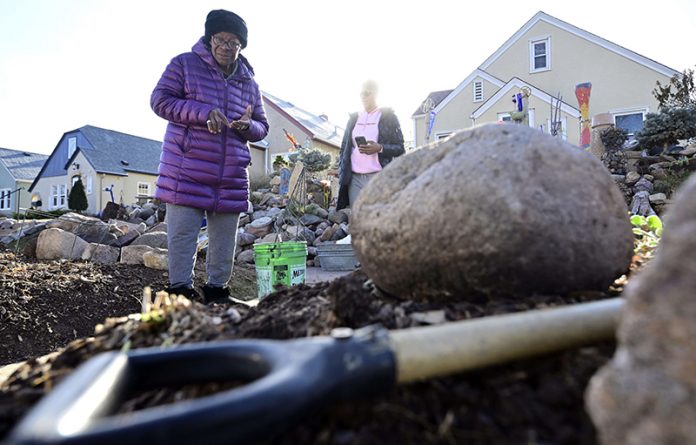
Associated Press
ST. PAUL, Minn. (AP) — Iris Logan was having a hard time growing grass in the front yard of her St. Paul, Minnesota, home, so she covered the space with stones, statues and decorative art. More than 30 years later, it’s something of a local landmark.
But to a city inspector, it’s a nuisance. Logan, 70, has been given notice to clean up the “planters, wood, metal cans, large rocks and miscellaneous debris” cited after a recent inspection, the St. Paul Pioneer Press reported. The City Council will take up the matter Dec. 6.
Logan says the city’s actions forced her to create the mosaic in the first place because workers on a road repair project dug so deep around one of her trees that its roots were exposed. She brought in bricks and dirt, planted flowers and added stones — and just kept adding.
”I’m a rock lover,” said Logan, a former cotton sharecropper from Mississippi. “I’m not going to lie. If I see a rock I like, I try and roll it in my car on a two-by-four.”
Logan recently received written notice that a city official will recommend to the City Council that she be given until Dec. 22 to clean things up. She appealed the order in careful handwriting that filled six pages of a short spiral notebook. The stones don’t extend into the street or impede plow trucks or other city vehicles, Logan wrote in addressing one of the inspector’s concerns.
“I just want to make a stand for the next person,” said Logan, interrupted by a supportive honk and wave from a neighbor driving by.
Casey Rodriguez, a spokesman for the St. Paul Department of Safety and Inspections, said about 16 other properties on the same avenue also received letters advising them to remove obstructions to comply with city code.
“Generally boulevards should be clear of installations or obstructions (benches, large rocks, etc.) that would impede access to buried utility lines. This also keeps the tree roots clear and provides a place to shovel snow in the winter,” Rodriguez said in an email to the Pioneer Press.
Earlier this month, a petition supporting Logan drew 150 signatures “in just a few hours,” according to a written statement from Justin Lewandowski, a community organizer who lives near Logan. He’s hopeful the council will soon clarify rules about portable planters.
“The quick support from our neighbors has been a clear signal of how much this art means to our community,” Lewandowski said. “It’s not just about aesthetics; it’s about our identity and how we, as residents, engage with each other and with city policy.”



















